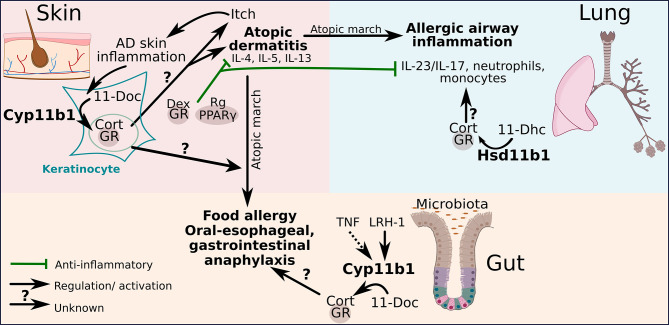Figure 2.
The perspective of GCs to regulate pathogenic crosstalk in the atopic march. Glucocorticoid receptor (GR) and peroxisome proliferating factor gamma (PPARγ)-mediated regulatory activities inhibit atopic dermatitis (AD) progression and reduce consequent atopic airway inflammation severity by inhibiting the IL-23/IL-17 axis upon topical dexamethasone (Dex)/rosiglitazone (Rg) treatment. AD skin inflammation enhances local de novo GC synthesis in keratinocytes through the conversion of 11-deoxycorticosterone (11-Doc) to corticosterone (Cort) catalyzed by 11β-hydroxylase (Cyp11b1). The regulatory potential of endogenous GCs on AD and associated atopic march diseases is yet still unclear. Local skin GCs have been shown to not restrict AD skin inflammation. The capacity of liver receptor homolog-1 (LRH-1)-regulated synthesis of gut-derived GCs and 11β-hydroxysteroid dehydrogenase (Hsd11b1)-dependent GC reactivation from 11-dehydrocorticosterone (11-Dhc) in the lung on atopic march diseases are unexplored.

